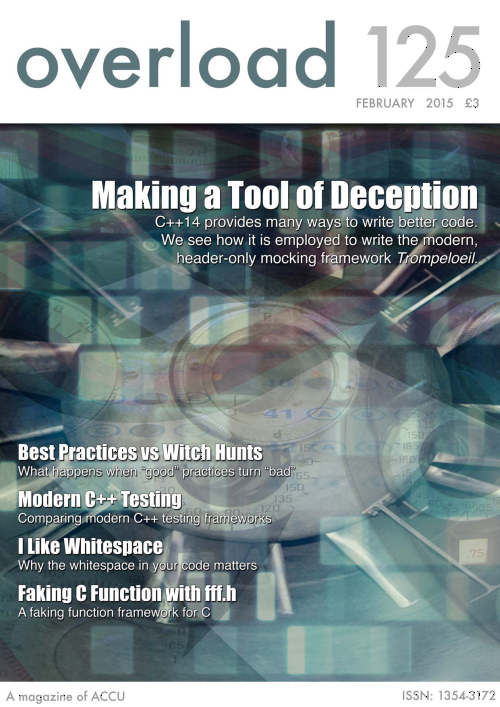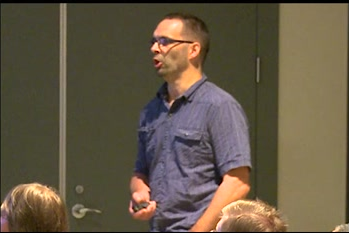Overload 125 is now available
ACCU's Overload journal of February 2015 is out. It contains C++ related articles.

Overload 125
From the journal:
Making a Tool of Deception: Is it possible to use modern C++ to make mocking easy? Björn Fahller introduces Trompeloeil, a header-only mocking framework for C++14.
Modern C++ Testing: Various C++ testing framework exist. Phil Nash compares CATCH with the competition.
I Like Whitespaces: Bob Schmidt shares why he thinks whitespaces matters.

 While we wait for CppCon 2015 in September, we’re featuring videos of some of the 100+ talks from CppCon 2014. Here is today’s feature:
While we wait for CppCon 2015 in September, we’re featuring videos of some of the 100+ talks from CppCon 2014. Here is today’s feature: While we wait for CppCon 2015 in September, we’re featuring videos of some of the 100+ talks from CppCon 2014. Here is today’s feature:
While we wait for CppCon 2015 in September, we’re featuring videos of some of the 100+ talks from CppCon 2014. Here is today’s feature: